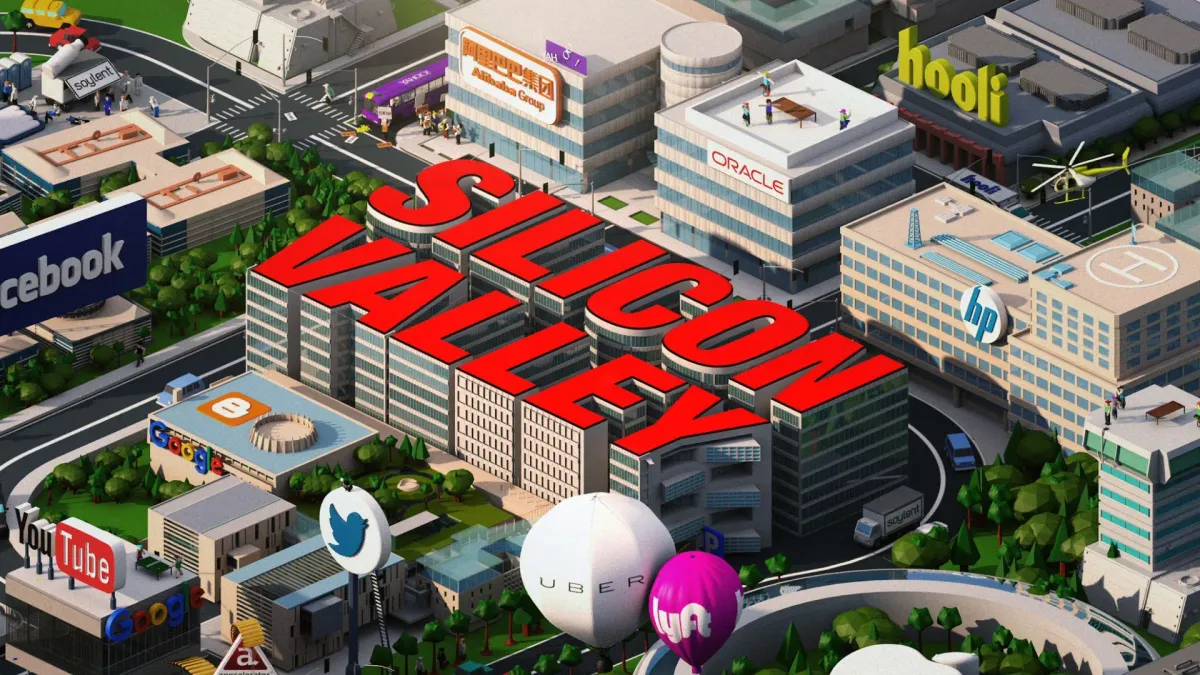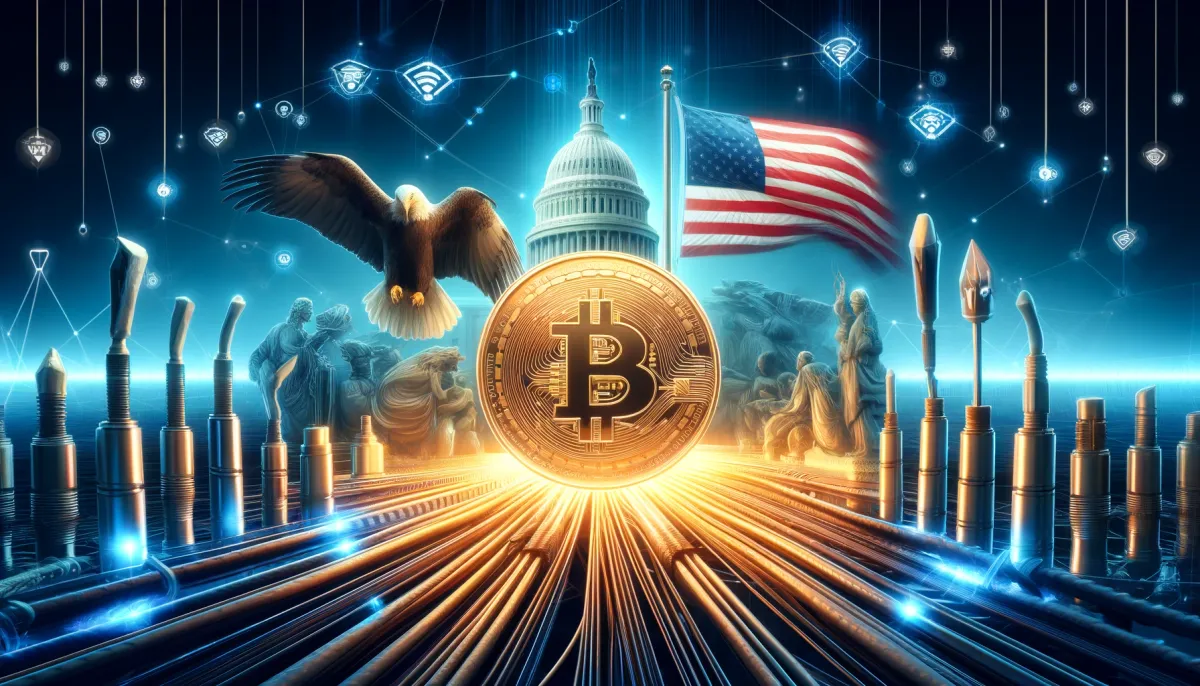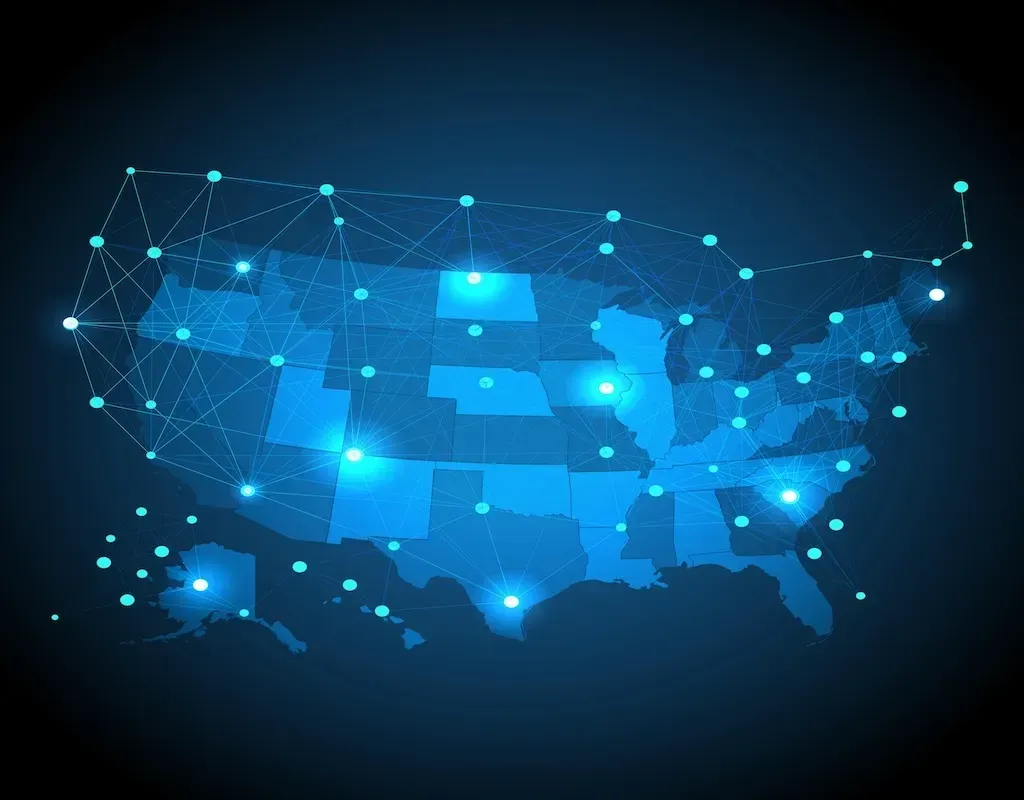How Silicon Valley Helped Make Donald Trump Competitive Again
The venture capitalists have created a permission structure for those who favor Silicon Valley-style 'disruptive innovation.'
Drew Clark

Silicon Valley is a state of mind more than a physical geography. It is a moniker for innovation in information technology and beyond.
That place, and that nickname, used to be solidly Democratic. Yet now some (but by no means all) of Silicon Valley's leading grandees are vocally advocating in the presidential race for Donald Trump over their hometown Senator-turned-Vice President Kamala Harris. Why?
Here's the simplest answer possible: Cryptocurrency regulation, fear of capital gains taxes, and the Valley's own taste for risk and even disruption.
Tech billionaires of the world, unite!
There's been great reporting in recent weeks by The New York Times and The Information, connecting the dots among the tech tycoons, including venture capitalist Peter Thiel, his protege David Sacks, and legendary VCs Marc Andreessen's and Ben Horowitz's July embrace of Trump.
(Plus the somewhat orthogonal role that Elon Musk played among this group in his own journey to "Dark MAGA.")
The most notable fact driving the alliance of otherwise-hesitant business executives was Trump's selection of Sen. JD Vance, R-Ohio, as his Vice Presidential nominee in mid-July. After authoring Hillbilly Elegy in 2016, Vance worked as a junior venture capitalist and a biotech executive in Silicon Valley, guided in some measure by Thiel himself.
Thiel made his money as co-founder of PayPal and as the first outside investor in Facebook. He made his political waves with his embrace of Trump and his speech at the 2016 Republican National Convention. And when Vance ran for Senate in 2022, Thiel was by far the biggest donor to his super PAC, giving $15 million.
The big impact of the 'Little Tech Agenda'
The story of Andreessen Horowitz, the largest VC firm by assets under management ($42 billion) is a little more specific and issue-driven than the journey of the Vance "bros."
On July 5, 2024, the firm published its "Little Tech Agenda."
 Andreessen HorowitzMarc Andreessen, Ben Horowitz
Andreessen HorowitzMarc Andreessen, Ben Horowitz
Although not (then) partisan, the manifesto highlighted the firm's concern over regulation, specifically of crypto currency, but more generally that of artificial intelligence and capital gains taxes:
For example:
Regulatory agencies have been green lit to use brute force investigations, prosecutions, intimidation, and threats to hobble new industries, such as Blockchain.
Regulatory agencies are being green lit in real time to do the same to Artificial Intelligence....
Regulatory agencies are punitively blocking startups from being acquired by the same big companies the government is preferencing in so many other ways....
And, the government is currently proposing a tax on unrealized capital gains, which would absolutely kill both startups and the venture capital industry that funds them.
In the following days, including those leading up to the Republican National Convention in Milwaukee, many pieces fell into place in the alliance between some in Silicon Valley and Donald Trump.
22 Days in July, from 'Little Tech Agenda' to Trump embrace
Around this time, Broadband Breakfast itself noted the growing influence of crypto on the political discussion. On July 8 (with the publication of an Exclusive Report on "Crypto and the Republicans") and on July 10 (in a column I wrote highlighting issues over tech policy dividing the parties), Broadband Breakfast highlighted concerns around innovation by Silicon Valley:
 Broadband BreakfastBroadband Breakfast
Broadband BreakfastBroadband Breakfast
 Broadband BreakfastDrew Clark
Broadband BreakfastDrew Clark
Of course, the dramatic attempt on Trump's life on Saturday, July 13, stoked sympathy for and admiration of the former president. (Meta CEO Mark Zuckerberg, the founder of Facebook, said that Trump's fist pump was "one of the most badass things I’ve ever seen in my life" - without endorsing Trump.)
And then two days after the assassination attempt, the Republican National Convention opened with Trump's selection of Vance. The next day, July 16, Andreessen and Horowitz officially endorsed Trump. The RNC itself was full of discussion and concern about tech regulation regarding crypto and AI:
 Broadband BreakfastJoel Leighton
Broadband BreakfastJoel Leighton
Tellingly, the three issues around "innovation" referenced in the GOP's platform were cryptocurrencies, AI regulation and space exploration. After the RNC concluded, Trump devoted an entire speech to the topic at a cryptocurrency convention on July 27, just 22 days after the release of the "Little Tech Agenda."
Ben Horowitz' mea culpa
On Sunday, July 21, of course, President Joe Biden dropped out of the presidential race, and Harris secured the support for the nomination in the days that followed.
Among the first item on her to-do list was: Shore up support from Silicon Valley funders – including Ben Horowitz.

Harris, who developed a friendship with Horowitz and his wife Felicia when Harris was California’s attorney general, began making frequent fundraising trips to the Bay Area. As reported by The Information:
Behind the scenes, [Kamala Harris'] aides worked to reassure tech leaders that a Harris administration would view tech as a partner, not an adversary. Horowitz himself also had several calls with the vice president and her team.
This outreach bore fruit. On Sept. 25, Harris published a policy document promising to “encourage innovative technologies like AI and digital assets while protecting our consumers and investors.” This softened stance on crypto and tech issues was enough to appease many potential Democratic supporters who had harbored concerns about her position.
Horowitz himself backtracked. On Oct. 4, Horowitz sent an email blast to everyone at Andreessen Horowitz. In it, he said, “Felicia and I have known Vice President Harris for over 10 years and she has been a great friend to both of us during that time.… As a result of our friendship, Felicia and I will be making a significant donation to entities who support the Harris Walz campaign.”
But he didn't change the firm's stance:
“Although I have had several conversations with Vice President Harris and her team on their likely tech policies and am encouraged by my belief in her, they have not yet stated what their tech policy will be, so the firm will not be updating its position in that regard.”
A return to Silicon Valley's libertarian roots?
In a way, Silicon Valley has always regarded Washington with distrust. It's goal has always seemed to be: Stay as far away from Washington as physically possible.
Silicon Valley once was the place that Democrats and Republicans wanted to emulate. After 2016, it became the place Democrats and Republicans wanted to bash. But Trump's attacks on Section 230 of the Communications Decency Act, and Biden's antitrust crusade against Google, Meta, Amazon and Apple, changed the equation.
While the VCs themselves don't suffer directly from trust-busting, the lawsuits raise concerns, as Andreessen Horowitz highlighted Biden's "punitively blocking startups from being acquired." And if there is one thing that a VC can't stand for, it's being kept from a financial exit – or being taxed on unrealized gains!
In fairness, Biden had proposed in his FY2025 budget a 25 percent tax on total income, including so-called "unrealized gains." Harris, as Vice President, endorsed that. But I'm doubtful this would see the light of day.
Instead, it's become something that VCs can point to as a reason not to vote for Harris.
Will Silicon Valley's views matter on Election Day? On one level, the billionaires' advocacy has already changed the dynamics of the race, making it truly competitive.
What this group of venture capitalists have done is to provide a particular sort of permission structure: Those who favor the type of "disruptive innovation" for which Silicon Valley is known, can now turn and vote for Donald Trump.









Member discussion